CG10
Chorionic gonadotropin human
lyophilized powder, vial of ~10,000 IU
Synonym(s):
Choriogonin, HCG
About This Item
Recommended Products
biological source
human urine
sterility
sterile-filtered
form
lyophilized powder
mol wt
37.9 kDa
contains
mannitol
packaging
vial of ~10,000 IU
drug control
Home Office Schedule 4.2
impurities
HBsAg, HCV and HIV-1/HIV-2, tested negative
solubility
water: 10 mL/vial, clear to slightly hazy, colorless
UniProt accession no.
shipped in
ambient
storage temp.
−20°C
Gene Information
human ... CGA(1081)
Looking for similar products? Visit Product Comparison Guide
General description
Application
- in in vitro analysis of cytotoxicity
- in egg and embryo preparations
- in the superovulation of CD-1 mice
- in gonadotropin preparations for the in vivo studies with the luteinizing hormone-releasing hormone (LHRH) agonist (LHRH-a) to synchronize naturally cycling rats.
Biochem/physiol Actions
Mice: i.v. 0.2 (7.7) I.U.; i.p. 0.3 (11.5) I.U.; s.c. 0.7 (26.9) I.U.
Syrian hamsters: i.v. 1.0 (9.5) I.U.; i.p. 1.8 (17.1) I.U.; s.c. 2.6 (24.8) I.U.
Rats: i.v. 1.3 (4.6) I.U.; i.p. 3.5 (12.3) I.U.; s.c.7.5 (26.3) I.U.
Using PMSG, the ED50 values per animal and per body weight (kg) in parenthesis were as follows:
Mice: i.v. 0.8 (30.8) I.U.; i.p. 2.0 (76.9) I.U.; s.c. 2.8 (107.7) I.U
Syrian hamsters: i.v., 3.6 (34.3) I.U.; i. p., 8.0 (76.2) I.U.; s.c., 13.2 (125.7) I.U.
Rats: i.v., 6.0 (76.8) I.U.; i p., 20.8 (73.0) I.U.; s.c., 76.8 (269.5) I.U.
Reconstitution
Analysis Note
Storage Class Code
11 - Combustible Solids
WGK
WGK 2
Flash Point(F)
Not applicable
Flash Point(C)
Not applicable
Certificates of Analysis (COA)
Search for Certificates of Analysis (COA) by entering the products Lot/Batch Number. Lot and Batch Numbers can be found on a product’s label following the words ‘Lot’ or ‘Batch’.
Already Own This Product?
Find documentation for the products that you have recently purchased in the Document Library.
Our team of scientists has experience in all areas of research including Life Science, Material Science, Chemical Synthesis, Chromatography, Analytical and many others.
Contact Technical Service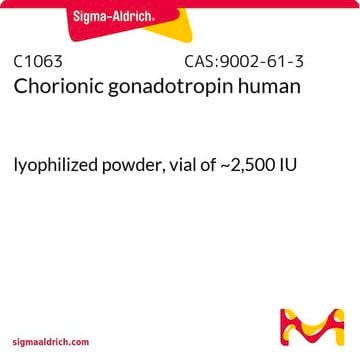
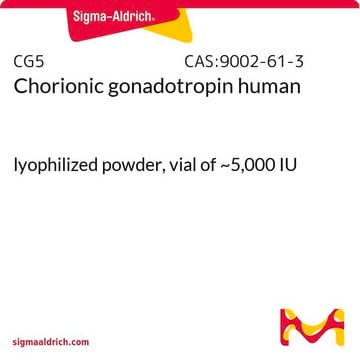

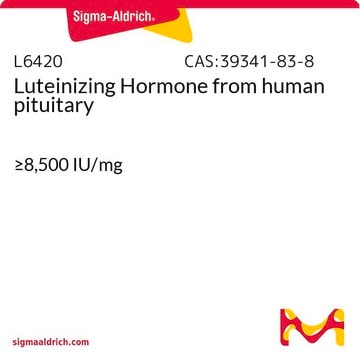
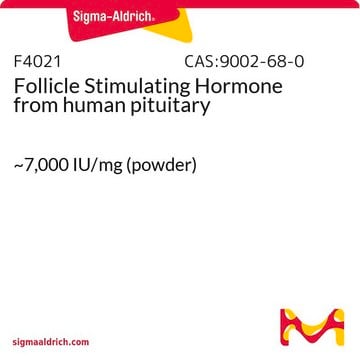
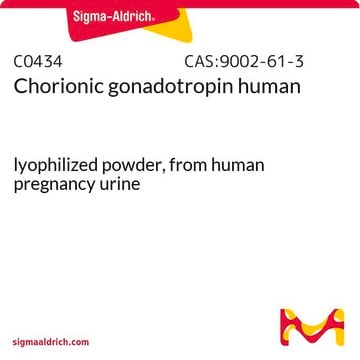
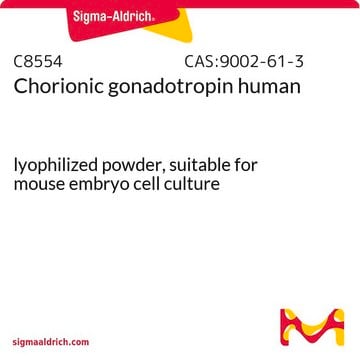
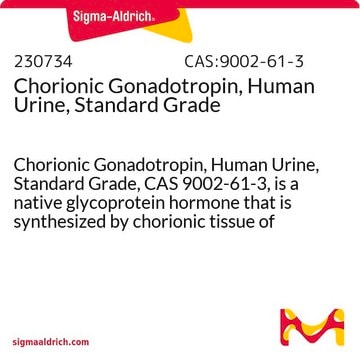
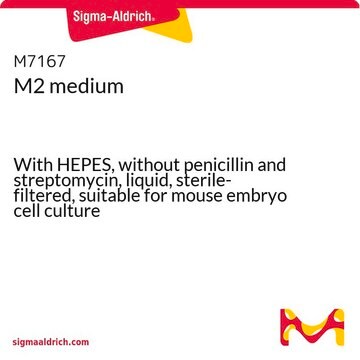
![[des-Gly10, D-Ala6]-LH-RH ethylamide acetate salt hydrate ≥97% (HPLC), powder](/deepweb/assets/sigmaaldrich/product/structures/150/195/13e08743-1592-4a6b-937d-559f571a2193/640/13e08743-1592-4a6b-937d-559f571a2193.png)